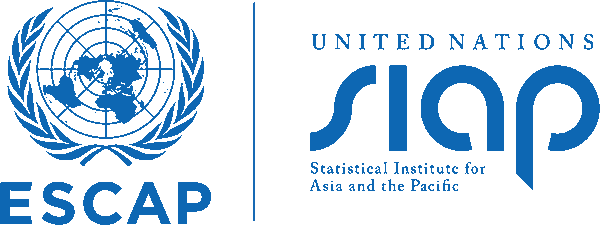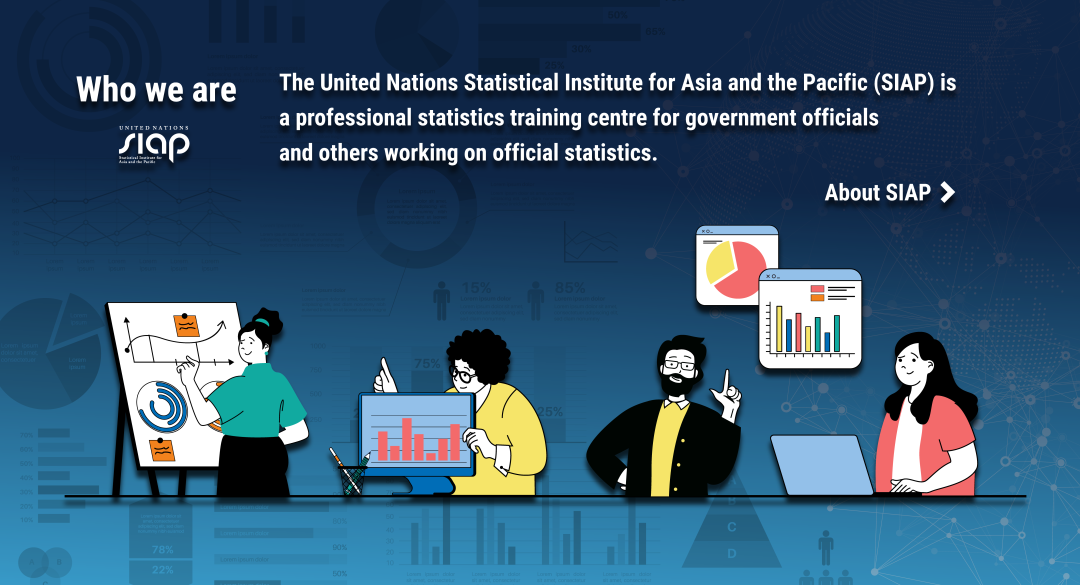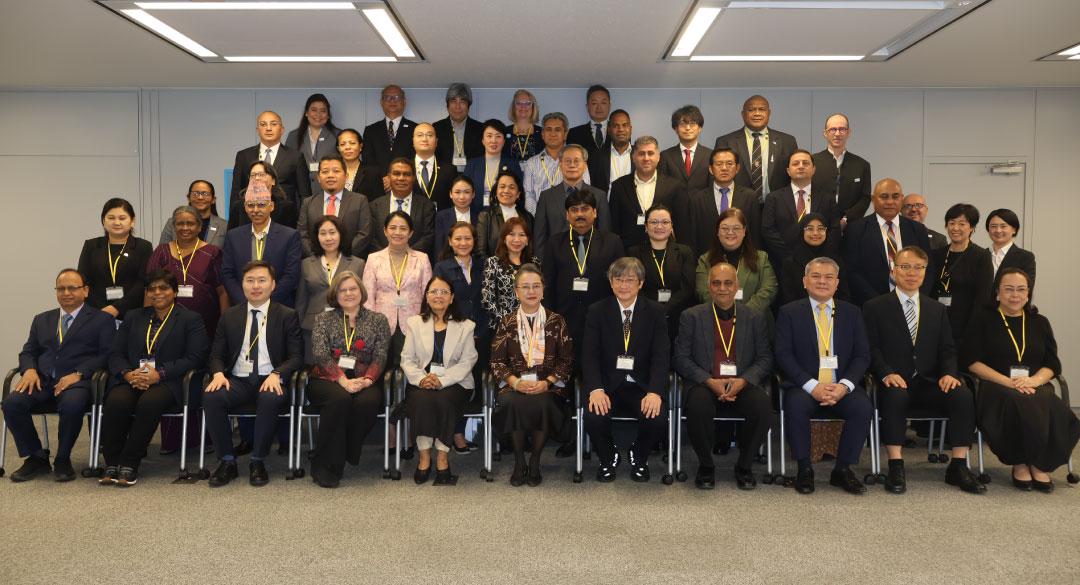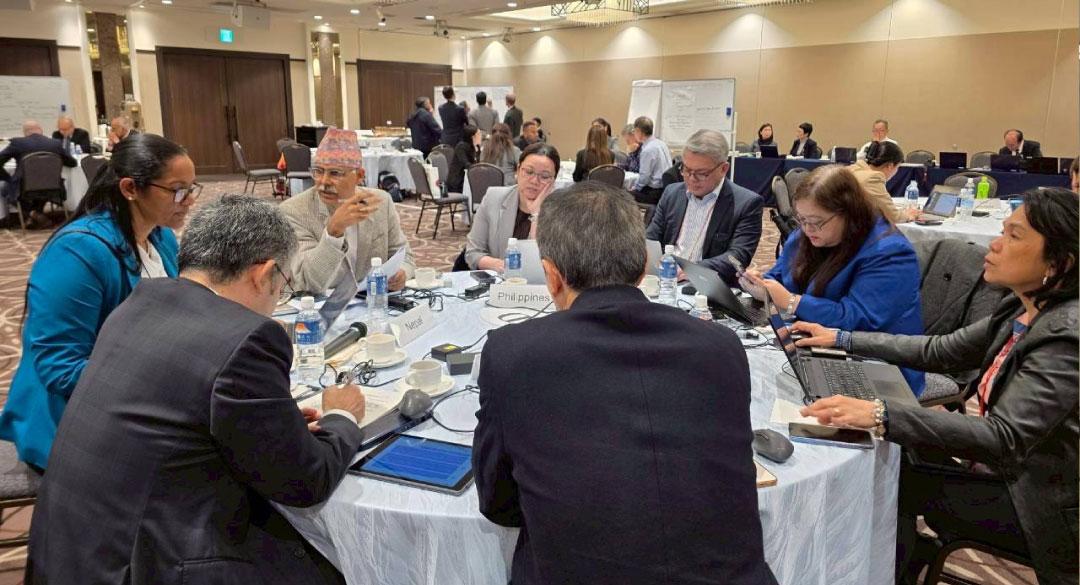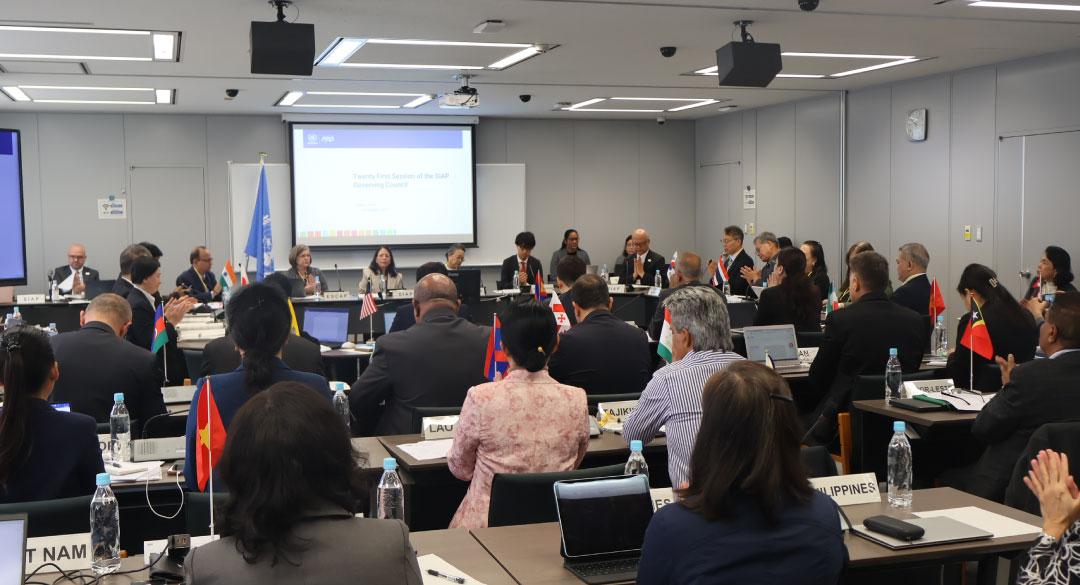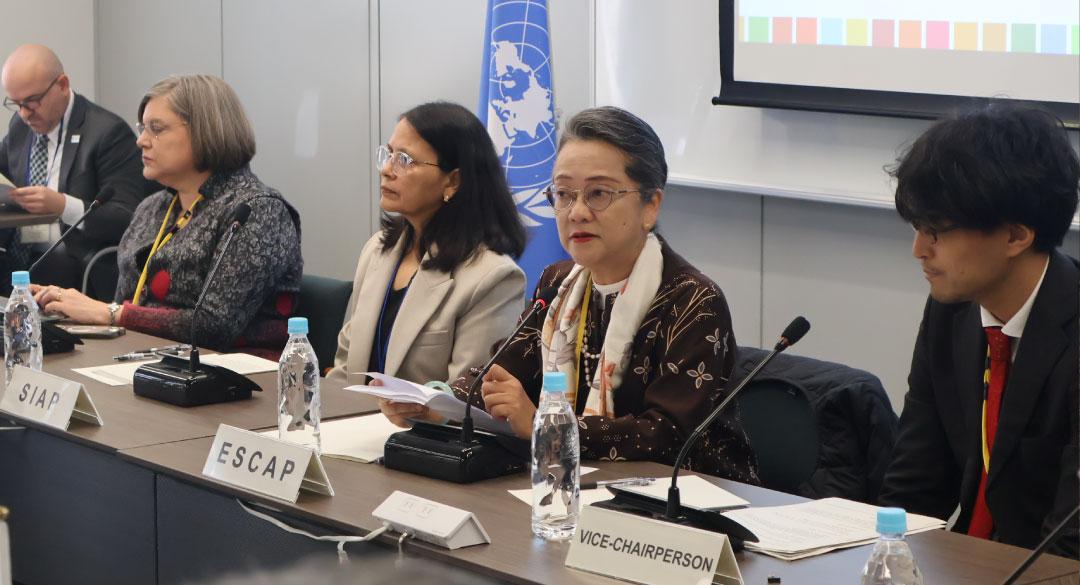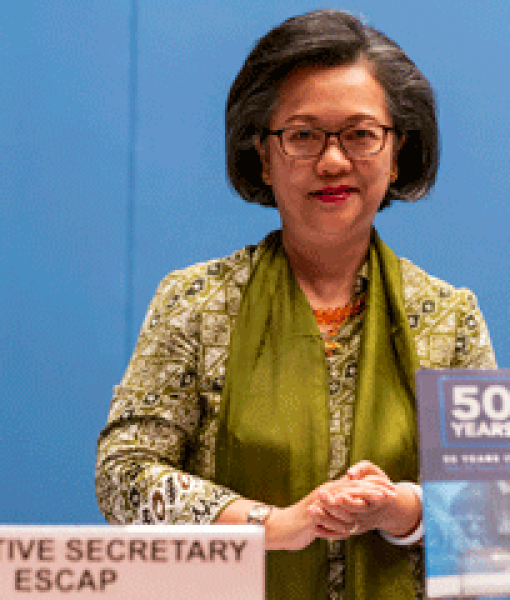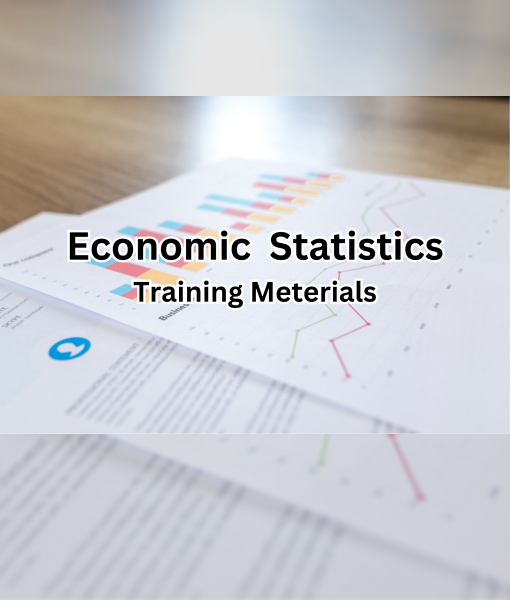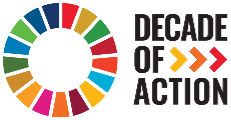
Positioning Statement
The United Nations Statistical Institute for Asia and the Pacific (SIAP) is a professional statistics training centre for government officials and others working on official statistics. SIAP offers short and long-term specialized trainings to strengthen knowledge and build skills of national governments' employees to produce, use, and share reliable statistics, including for the monitoring of the Sustainable Development Goals and the development of fact-based policy.
SIAP is a regional training arm of the Economic and Social Commission for Asia and the Pacific (ESCAP).
Upcoming Events
e-Learning
16 February to 20 March 2026
Online
SIAP
e-Learning
Webinar
17 March to 07 April 2026
Online
ASEAN, SIAP
e-Learning
06 April to 08 May 2026
SIAP, UNSD
e-Learning
Completed Events
In person
02 to 03 December 2025 | Chiba and Tokyo, Japan
In person
01 to 04 December 2025 | Chiba and Tokyo, Japan
Webinar
18 to 20 November 2025 |
In person
27 to 31 October 2025 | Daejeon, Republic of Korea
